This MP’s son died weeks ago – she returned to work to vote for same-sex marriage
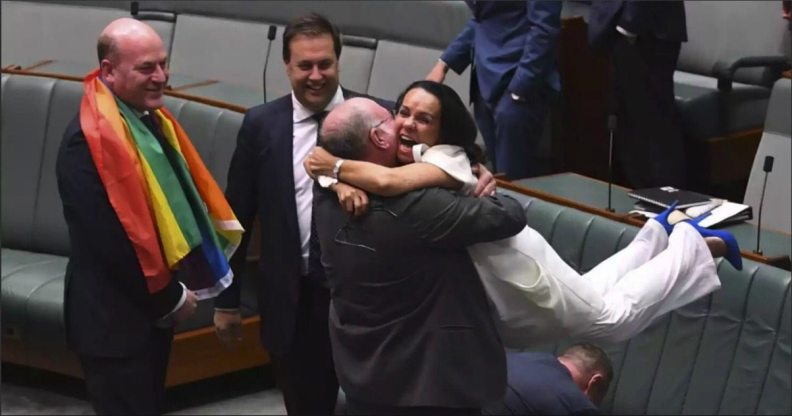
After more than a decade of debate, 13 million votes and $122m spent, Australia finally enshrined in law the right of all its citizens to marry the person they love.
MPs of opposing parties broke into spontaneous celebration – singing, cheering, even crying as the law was passed.
The public gallery serenaded politicians with a very unparliamentary rendition of ‘I am Australian’ without censure from the speaker.
These were not usual scenes for any parliament, let alone Australia’s notoriously rowdy chamber, as same-sex marriage was voted through almost unanimously.
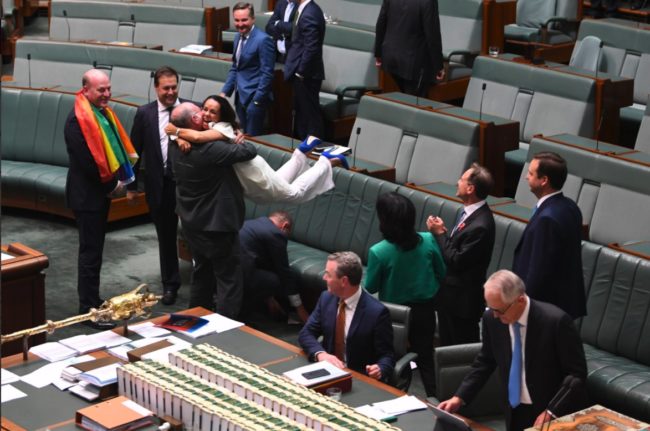
Amid the emotional scenes, one photo captured the moment of pure joy between two MPs of opposing parties.
Linda Burney, a Labor MP, can be seen screaming with joy as she is lifted into the air by Liberal MP Warren Entsch.
Both have argued for marriage equality their whole parliamentary careers.
Entsch was among the first voices on Australia’s right to advocate for same-sex marriage, defying his own party since 2004 to support LGBT people.
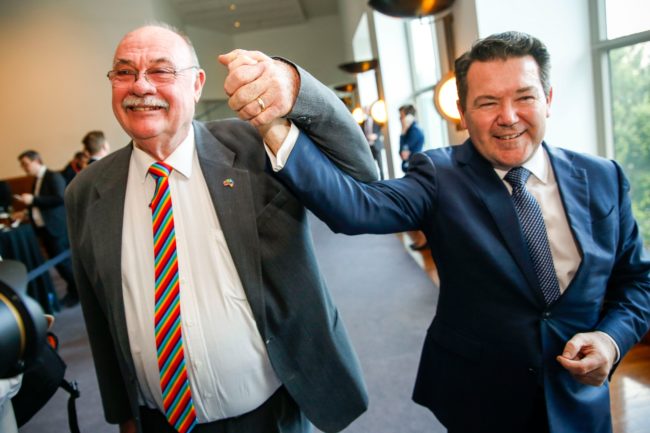
Warren Entsch (L) and Senator Dean Smith, who proposed the marriage equality law
In 2006 he first tried to introduce a private member’s bill to parliament in support of changing the marriage act, before trying again in 2015, only to be shut down by his then leader, prime minister Tony Abbott.
On the other side of the House, Linda Burney, Australia’s first Aboriginal MP, fought back tears as she told parliament her heart-breaking reason for supporting equality.
Taking to her feet in parliament, it became clear that this speech, and its timing, meant something very significant to her.
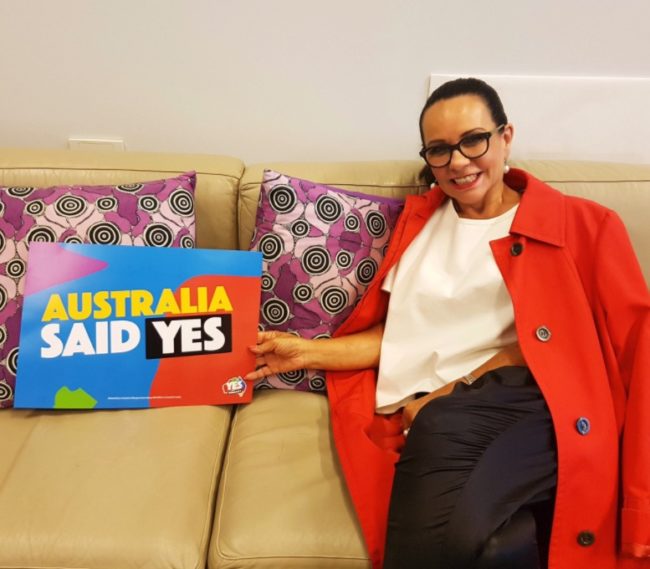
“I support marriage equality as someone who has and has had loved ones who identify as LGBTI,” she told a stunned, silent parliament.
Her 33-year-old son, Binni Kirkbright-Burney, had been found dead weeks earlier. Police declared there were no suspicious circumstances.
“To them,” she said, “Marriage equality would mean so much.”
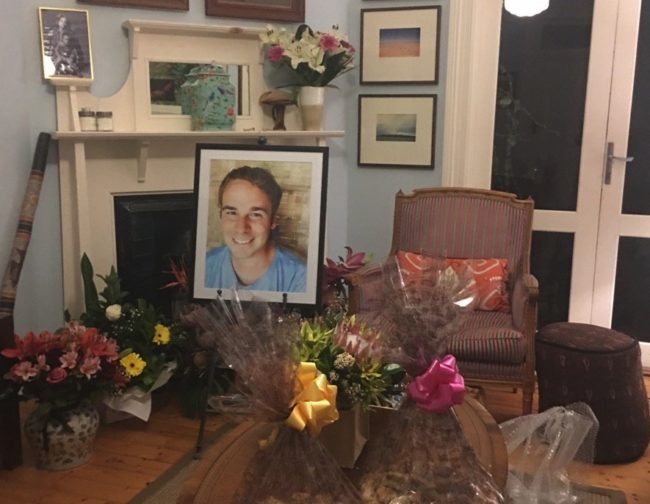
A shrine to her son, Binni Kirkbright-Burney (Twitter)
It soon became clear this was not a politician delivering a speech. This was a mother paying tribute to her child in front of the world.
“I honour these people,” she told parliament, her voice faltering with emotion, “In particular my late son, Binni.”
On October 24th her son unexpectedly died after years struggling with mental health and addiction.
"I support marriage equality as someone who has, and has had, loved ones who identify as LGBTIQ. To them, marriage equality would mean so much" pic.twitter.com/UAj4UdqWZt
— Linda Burney MP (@LindaBurneyMP) December 5, 2017
“I wish to advise that my beloved son, Binni Kirkbright-Burney was found dead last night at our family home in Sydney,” she said on October 25, describing him as a “caring and loving man”.
“I returned to Sydney last night to be with him this one last time,” she wrote before the funeral.
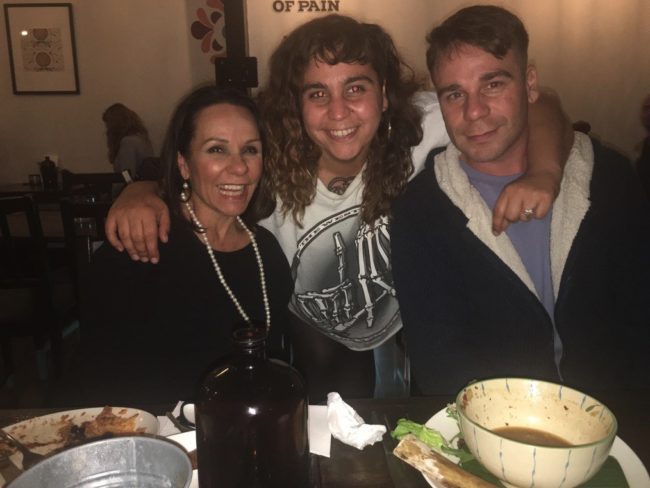
Linda Burney MP with her daughter and late son (Twitter)
“He has struggled with mental health and with addiction. He tried so hard to conquer his demons, as I and my family have tried so hard to support him in every way we could.”
The road to marriage equality in Australia was long, unpredictable and very rocky.
The process was clouded by the bigotry it fuelled, with abuse aimed at LGBT people increasing during the months of the public debate.
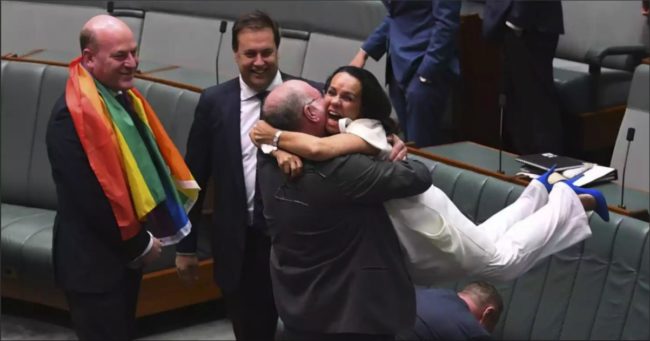
Finally, one minute before 6pm on December 7th, those clouds parted as marriage equality became Australian law, and the face of one bereaved mother was filled with joy again.

